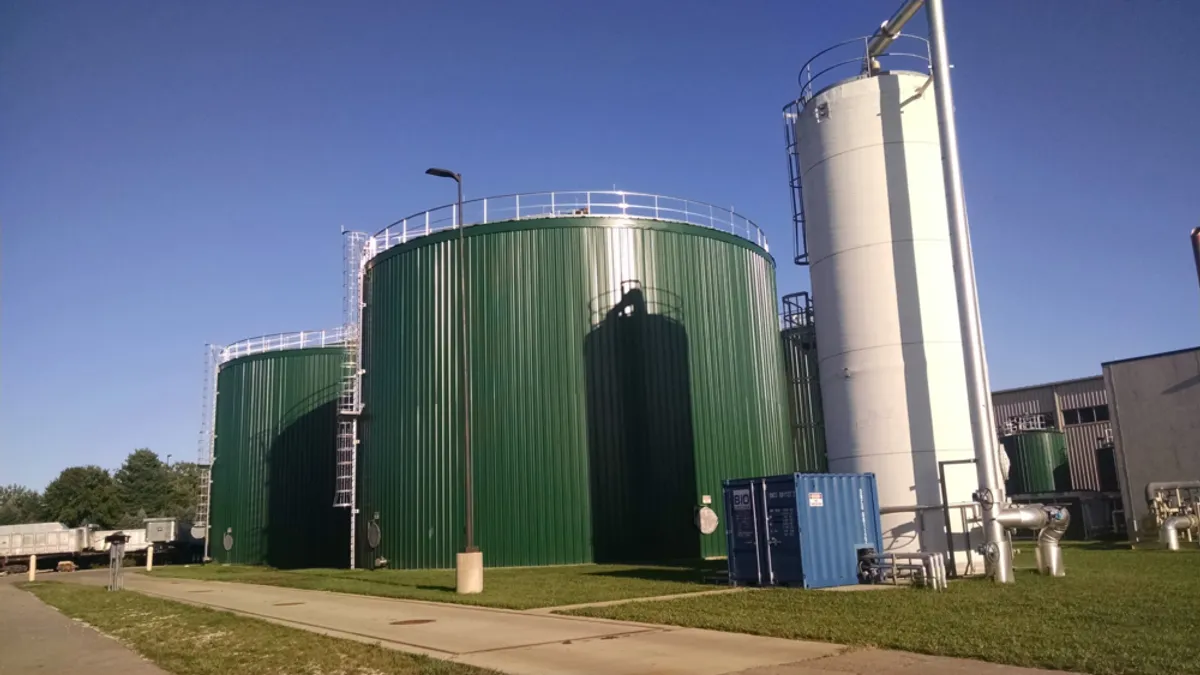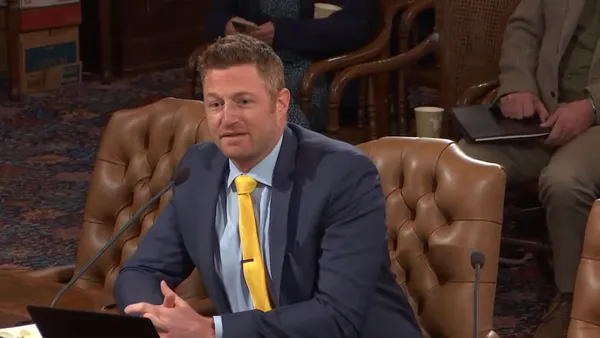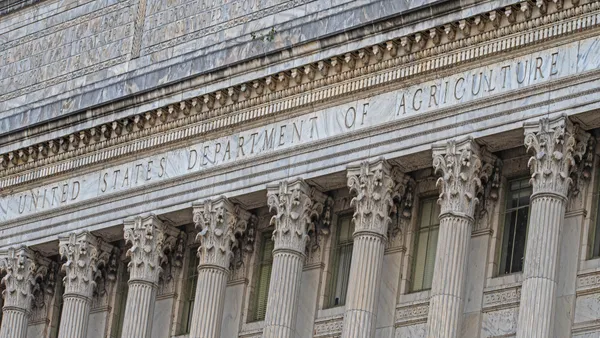Dive Brief:
- Generate Upcycle stopped accepting organics at its Fremont Regional Digester this week, executives said in an interview. It’s the latest escalation amid permitting challenges with Michigan's Environment, Great Lakes, and Energy agency concerning the facility's digestate.
- The issues stem from EGLE's recent move to require that Upcycle obtains a groundwater discharge permit. Upcycle executives argue its operations produce a fertilizer product and not the kind of pollutant that would require such a permit. They say the new permitting process would be prohibitively expensive.
- EGLE still must issue a permit extension to the facility in order for Upcycle to land apply the 15 million pounds of digestate remaining at the facility, according to executives. Upcycle President Bill Caesar said he was still open to restarting the digester if his company could come to an agreement with EGLE.
Dive Insight:
The facility has been winding down operations since December. It stopped accepting most food waste at the end of 2023, but it continued to accept feedstock from two of its customers until the end of January. Caesar declined to name the companies, but he said the feedstock totaled about 10% of the digester's typical intake.
Upcycle expects to begin laying off the facility's 17 employees in the next few weeks as the digester goes offline. The shutdown takes about 150,000 tons of annual processing capacity offline in Michigan at a time when the state is looking to boost its organics diversion rates.
"The customers who are no longer able to use Fremont are having to find other options for the waste that they generate," Caesar said. "We know that some of them are having a hard time, which we’re not surprised by."
EGLE Public Information Officer Jeff Johnston said the agency was constrained in what it could say about the situation, citing ongoing permit negotiations with Upcycle. But he said the agency is "supportive of anaerobic digestion and the energy it produces."
"EGLE has prioritized work on this permit to provide the facility with regulatory certainty as quickly as possible. Until the groundwater permit can be issued, EGLE is allowing Generate to continue to land apply its liquid waste in accordance with standards applicable to agriculturally beneficial solid wastes," Johnston said in an email.
He also noted the agency's concerns with overapplication of the digestate, which he said "can cause surface water quality problems, such as the development of toxic, harmful algal blooms (HABs) and excess aquatic plant growth that choke waterways."
Upcycle has denied its digestate can cause environmental issues, instead highlighting the digestate's role as a fertilizer that requires less carbon than synthetic fertilizer.
In a letter to Caesar last year, EGLE Director Phillip Roos argued the digestate's quality had changed and became more liquid over time. He also said the facility was "not currently profitable."
Upcycle executives pushed back on both claims. Vice President of Operations Dan Meccariello said the digestate does "vary slightly in consistency" due to the variable nature of its feedstock, but "but generally speaking the material is very similar over the years." Caesar said the facility had operated "slightly in the red" but that Upcycle had been looking into improvements to the facility that would have boosted profitability.
He said the facility could have installed depackaging equipment, and prior to the permitting battle he was also exploring upgrading the gases it produced to renewable natural gas, which can offer a significant financial boost to biogas facilities.
Upcycle is currently on an $80 million capital expenditure campaign geared toward building out RNG facilities, including multiple locations in Ontario and New York. Generate Capital, Upcycle's parent company, is also flush with cash: On Thursday, it announced a $1.5 billion fundraising round led by The California State Teachers’ Retirement System, along with Australian worker retirement fund HESTA and other existing investors.
"I am absolutely investing money into projects where I think there is a return on that investment. I can’t say that in Fremont right now because of that permit," Caesar said.
Upcycle executives are still showing up to the table for permit negotiations and last met with regulators in mid-January. Caesar said he was still willing to invest in the Fremont digester if Upcycle can come to terms with EGLE on the parameters and restrictions included in its permits.
"Until there is a final resolution one way or the other, I’m going to work under the assumption that we could open the site back up," Caesar said. "I can’t tell you when we’ll have that resolution."














